Ain Shams University Hosts the Launch of the Arab Biobank Network Project to Strengthen Arab and International Scientific Research
Today, Ain Shams University hosted the inaugural conference to announce the launch of the Arab Biobank Network (Arab Biobank Network). The event took place under the patronage of Prof. Mohamed Diaa Zain El-Abedeen, President of Ain Shams University, and Prof. Ali Al-Anwar, Dean of the Faculty of Medicine.
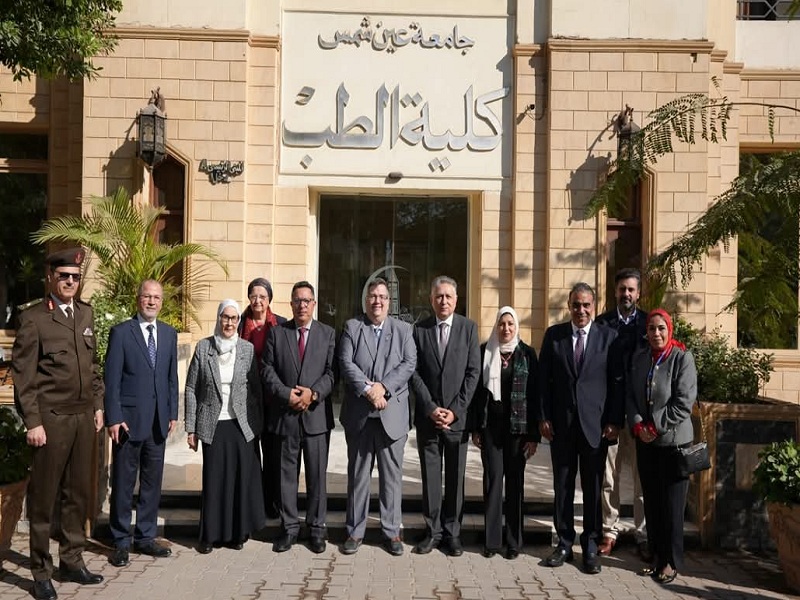 |
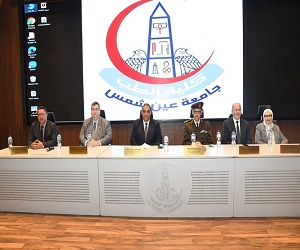 |
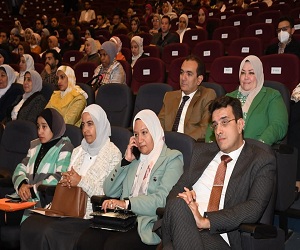 |
||
The event was held as part of the project’s contract signing, organized by the Association of Arab Scientific Research Councils in collaboration with Ain Shams University. It witnessed the attendance of distinguished figures, including: Prof. Abdel-Mageed Bin Amara, Secretary-General of the Association of Arab Scientific Research Councils, Prof. Gena El-Feky, Acting President of the Academy of Scientific Research and Technology, Medical Brigadier General Mohamed El-Gohary, Director of the Medical Research and Regenerative Medicine Centre, Prof. Hisham El-Ghazaly, Director of the Ain Shams Medical Research Institute (MASRI), Prof. Zisis Kozlakidis, Director of the Biobank at the International Agency for Research on Cancer (IARC), part of the World Health Organization, Dr. Nahla Abdel Aziz, former Director of Qatar Biobank, Prof. Maher Al-Sagheer, Director of the Biobank in Jordan, and Dr. Amany Maher,Head of the Arab Biobanks Network , Principal researcher of the Project, and Executive Director of the Biobank at the Ain Shams Medical Research Center (MASRI). Also present were representatives from biobanks across the Arab world and prominent faculty members from Ain Shams University, including Prof. Osama Mansour, Vice Dean for Postgraduate Studies and Research, and Prof. Rania Salah, Vice Dean for Education and Student Affairs.
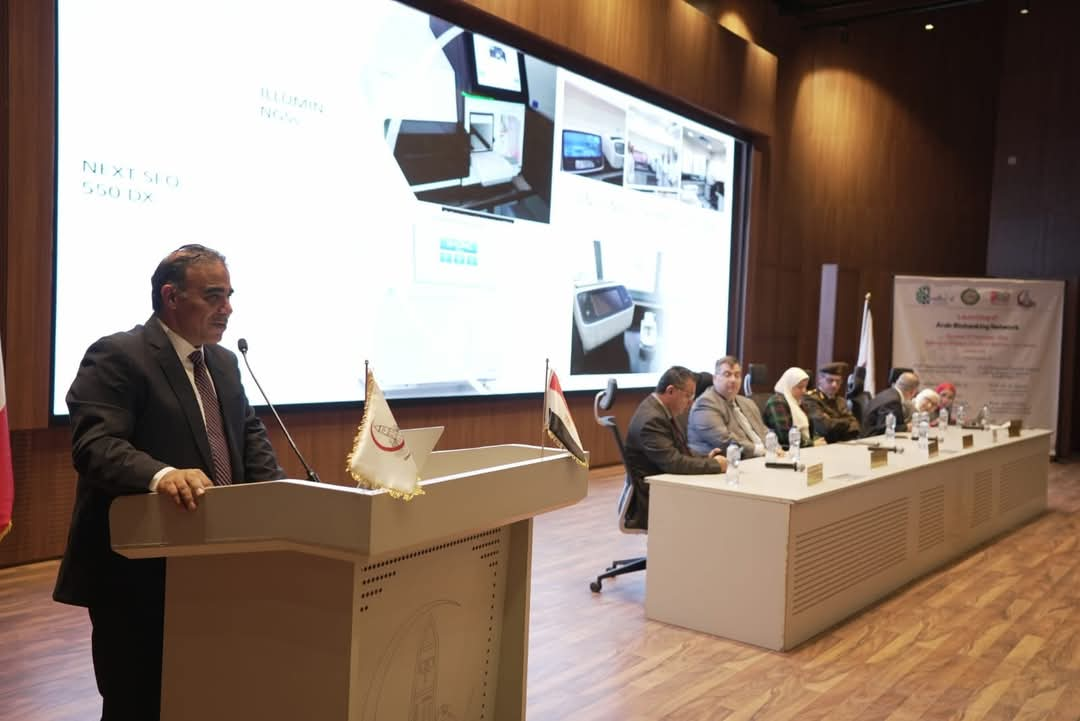 |
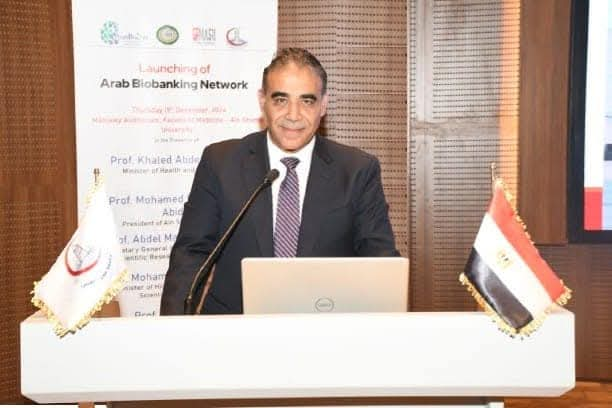 |
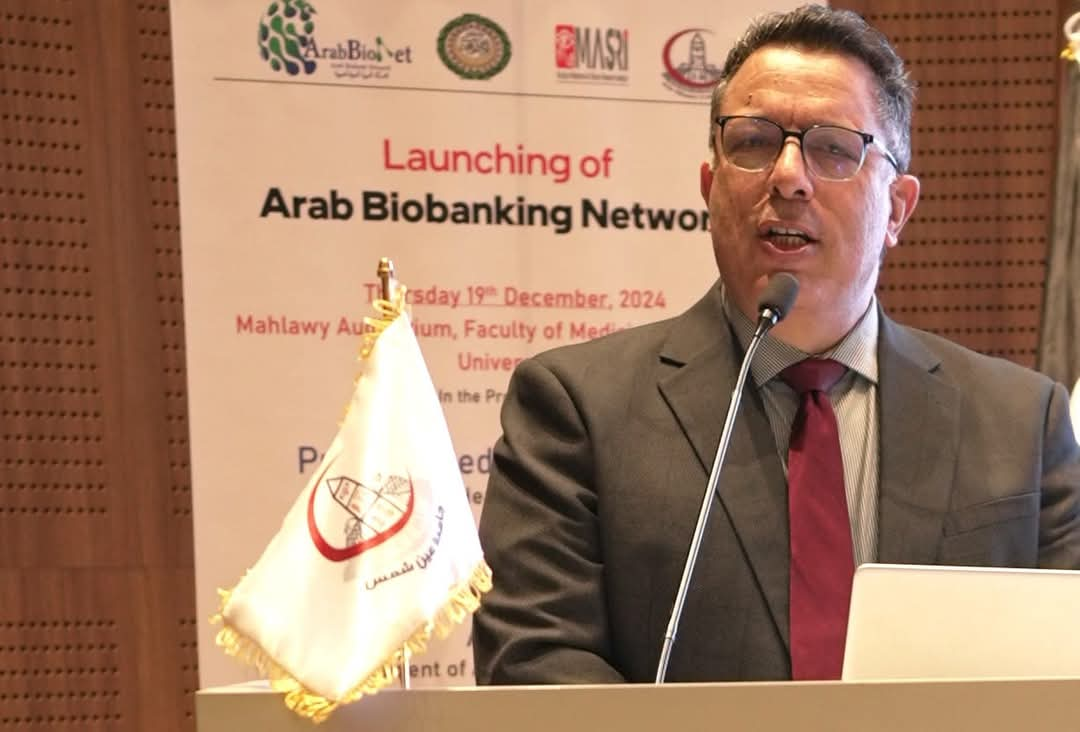 |
||
During his speech, Prof. Hesham El-Ghazaly highlighted that the Ain Shams Cancer Biobank, part of MASRI, is the first cancer biobank in Egyptian universities. It houses over 30,000 samples of major cancers, including breast, lung, bladder, colon, and rectal cancers.
He emphasized that biobanks are a strategic asset for advancing scientific research, contributing to the development of innovative drugs and diagnostic techniques for disease analysis and prediction.
Prof. El-Ghazaly also noted Egypt’s leadership in the project, in partnership with Qatar and Jordan, with additional Arab countries such as Tunisia, Algeria, and Libya set to join soon. He expressed optimism about achieving new patents in cancer research through these collaborations.
He further explained that the Ain Shams Cancer Biobank is a member of the International Agency for Research on Cancer (IARC) and serves as the central hub for Arab biobanks.
Prof. Abdel-Mageed Bin Amara, in his speech, praised the Arab Biobank Network, which operates under the Arab League's umbrella, as a pioneering platform for fostering collaboration among Arab nations and international partners.
He lauded Egypt’s leading role in scientific research, citing Ain Shams University as a distinguished model of academic excellence since the late 19th century. He also emphasized the importance of this initiative, which is one of 28 flagship research projects aimed at establishing Arab collaboration in scientific research alongside international partners.
The network, he added, is a new platform for enhancing Arab and international scientific cooperation, enabling researchers from different Arab countries to collaborate and connect with global peers, thereby facilitating the exchange of knowledge and expertise.
Prof. Bin Amara announced increased financial support for the biobank to expand the Arab Biobank Network and include additional countries.
The conference featured a short film showcasing the role of the Association of Arab Scientific Research Councils as a key organization for Arab collaboration.
At the event's conclusion, Prof. Hesham El-Ghazaly was honored for his eight years of dedication to supporting biobank projects.
The Arab Biobank Network aims to preserve biological samples in integrated biobanks that serve scientific and medical research, encouraging Arab collaboration in advanced medical studies and providing innovative solutions to shared health challenges in the region.
As part of the Arab Alliance for Research, Innovation, and Development (ARICA), this initiative marks a pivotal step in advancing Arab scientific research and bolstering its global standing.

.svg)
